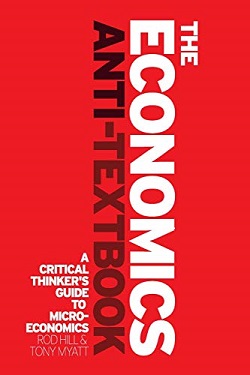
James Joseph Heckman is an American economist and Nobel laureate who serves as the Henry Schultz Distinguished Service Professor in Economics at the University of Chicago, where he is also a professor at the College, a professor at the Harris School of Public Policy, Director of the Center for the Economics of Human Development (CEHD), and Co-Director of Human Capital and Economic Opportunity (HCEO) Global Working Group. He is also a professor of law at the Law School, a senior research fellow at the American Bar Foundation, and a research associate at the NBER. He received the John Bates Clark Medal in 1983, and the Nobel Memorial Prize in Economic Sciences in 2000, which he shared with Daniel McFadden. He is known principally for his pioneering work in econometrics and microeconomics.

Home economics, also called domestic science or family and consumer sciences, is a subject concerning human development, personal and family finances, consumer issues, housing and interior design, nutrition and food preparation, as well as textiles and apparel. Much less common today, it was, and is, mostly taught in secondary school or high school.
The post-autistic economics movement, or movement of students for the reform of economics teaching, is a political movement that criticises neoclassical economics and advocates for pluralism in economics. The movement gained attention after an open letter signed by almost a thousand economics students at French universities and grandes ecoles was published in Le Monde in 2000.

Heterodox economics is any economic thought or theory that contrasts with orthodox schools of economic thought, or that may be beyond neoclassical economics. These include institutional, evolutionary, feminist, social, post-Keynesian, ecological, Austrian, humanistic, complexity, Marxian, socialist, anarchist and modern monetary theory economics.
Self-advocacy is the act of speaking up for oneself and one's interests. It is used as a name for civil rights movements and mutual aid networks for people with intellectual and developmental disabilities. The term arose in the broader civil rights movements of the 1960s and 1970s, and is part of the disability rights movement. Today there are self-advocacy organizations across the world.
Economics education or economic education is a field within economics that focuses on two main themes:

The European Association for Evolutionary Political Economy (EAEPE) is a pluralist forum of social scientists that brings together institutional and evolutionary economists broadly defined. EAEPE members are scholars working on realistic approaches to economic theory and economic policy. With a membership of about 500, EAEPE is now the foremost European association for heterodox economists and the second-largest association for economists in Europe.

Foundation for European Economic Development (FEED) is a charity formed in November 1990 under the auspices of the European Association for Evolutionary Political Economy. The charity is formally registered under the Charities Act 2006. It has provided financial assistance for various projects and organisations, including research prize competitions, summer schools, conferences, and other research events.

The Global Centre for Pluralism is an international centre for research, education and exchange about the values, practices and policies that underpin pluralist societies. Based in Ottawa, Ontario, Canada, the Centre seeks to assist the creation of successful societies.
The Autistic Self Advocacy Network (ASAN) is an American 501(c)(3) nonprofit advocacy organization run by and for individuals on the autism spectrum. ASAN advocates for the inclusion of autistic people in decisions that affect them, including: legislation, depiction in the media, and disability services.
Stephen T. Ziliak is an American professor of economics whose research and essays span disciplines from statistics and beer brewing to medicine and poetry. He is currently a faculty member of the Angiogenesis Foundation, conjoint professor of business and law at the University of Newcastle in Australia, and professor of economics at Roosevelt University in Chicago, IL. He previously taught for the Georgia Institute of Technology, Emory University, and Bowling Green State University. Much of his work has focused on welfare and poverty, rhetoric, public policy, and the history and philosophy of science and statistics. Most known for his works in the field of statistical significance, Ziliak gained notoriety from his 1996 article, "The Standard Error of Regressions", from a sequel study in 2004 called "Size Matters", and for his University of Michigan Press best-selling and critically acclaimed book The Cult of Statistical Significance: How the Standard Error Costs Us Jobs, Justice, and Lives (2008) all coauthored with Deirdre McCloskey.

The Economics Anti-Textbook is both an introduction to, and critique of the typical approaches to economics teaching, written by Roderick Hill and Tony Myatt in 2010. The main thrust of the authors' argument is that basic economics courses, being centered on models of perfect competition, are biased towards the support of free market or laissez-faire ideologies, and neglect to mention conflicting evidence or give sufficient coverage of alternative descriptive models. This book has been updated and superseded by The Microeconomics Anti-Textbook and The Macroeconomics Anti-Textbook, by the same authors.
The Tepper School of Business is the business school of Carnegie Mellon University. It is located in the university's 140-acre (0.57 km2) campus in Pittsburgh, Pennsylvania.
BINA: The Jewish Movement for Social Change is a Jewish non-profit organization and educational institution that offers pluralistic programs and forums for adults and young adults seeking to explore their Jewish roots. It was founded in 1996, and has centers in Tel Aviv, Jerusalem, Haifa and Beer Sheva, Israel. BINA means "wisdom" in Hebrew and is an acronym for "A Home for the Creation of Our Nation's Souls", a phrase coined by Hebrew poet Chaim Nachman Bialik.
The International Student Initiative for Pluralist Economics (ISIPE) is an alliance of university student groups and societies from several countries campaigning for a reform of economics education and research. Founded in early 2014, the Initiative brings together various groups that had previously operated at a local or national level such as Rethinking Economics. It argues for a reorientation of the discipline toward pluralism in university curricula as well as research activity, involving the inclusion and equal treatment of heterodox approaches, greater interdisciplinarity, as well as increased awareness of methodological issues, the history of economic thought, and economic history.
Discrimination against autistic people involves any form of discrimination, persecution, or oppression against people who are autistic. Discrimination against autistic people is a form of ableism.
The Econocracy: the perils of leaving economics to the experts is a 2017 book by Joe Earle, Cahal Moran and Zach Ward-Perkins that argues that the United Kingdom has become an econocracy, a society in which improving the economy has become the main purpose of politics. They demonstrate how this undermines democracy, in turn increasing the power and authority of economists. The authors see this as societally damaging because of the problematic state of the discipline of economics.
Rethinking Economics is a network of academic scholars and students in several countries that promotes pluralism in economics. It grew out of the broader International Student Initiative for Pluralist Economics and has groups in the United Kingdom, Italy, the Netherlands, India, Bangladesh, the US, Norway and many more countries. The goal of the movement is to open up the discipline to different schools of thought in economics other than neoclassical economics and to other disciplines in the social sciences. Another aim is to make economics more accessible to the broader public.
The Curriculum Open-Access Resources in Economics Project is an organisation that creates and distributes open-access teaching material on economics. The goal is to make teaching material and reform the economics curriculum. Its textbook is taught as an introductory course at almost 400 universities. It provides its materials online, at no cost to users. It is registered as a charity in England and Wales.
Morénike Giwa Onaiwu is an American educator, author, and autism and HIV advocate. Alongside E. Ashkenazy and Lydia Brown, Onaiwu is an editor of All the Weight of Our Dreams, an anthology of art and writing entirely by autistic people of color published by the Autism Women's Network in June 2017.






